Buy the photo Baphomet and Modern Conspiracies - Fear and Fascination in the Corona Age by Elianne van Turennout on canvas, ArtFrame, poster and wallpaper, printed on demand in high quality.
About "Baphomet and Modern Conspiracies - Fear and Fascination in the Corona Age"
by Elianne van Turennout
About the artwork
Baphomet, a god allegedly worshipped by the Knights Templar, has generated much mystery and controversy over the centuries. During trials against the Templars, this so-called idol was often mentioned. According to legends, Baphomet has a goat's head, a woman's body and cloven hooves, and was worshipped by the Templars, who were eventually condemned for worshipping idols.
The recent Corona period saw an increase in conspiracy theories becoming mainstream. One of the notable theories was that Mark Rutte, the Dutch prime minister, would worship Baphomet. This rumour arose after he once received a ram's head as a gift from former prime minister Jan-Peter Balkenende. These theories highlight the fear and uncertainty many people feel in uncertain times.
Whether Baphomet actually exists or not is irrelevant; what is important is the intense fear some people have of him. This fear reflects a deeper sense of powerlessness and confusion. During the Corona period, many people were drawn to conspiracy theories as a way to get a grip on the chaotic world around them.
The slogan "do your own research" encouraged people to search for answers themselves, often resulting in a survival instinct to flee the perceived threat. This fascinating dynamic of fear and the search for control is an important aspect of modern life, especially in times of crisis.
This story of Baphomet, and the conspiracy theories surrounding his worship by well-known figures such as Mark Rutte, offers an intriguing insight into the human psyche and the ways in which fear manifests itself in times of uncertainty. It reminds us how deep-rooted and real people's fears can be, regardless of the actual basis of those fears.

About Elianne van Turennout
It all started with a4 paper and HB pencils. As a child I was often impressed by how beautiful the world around me was. The urge to capture this beautiful world, and to show the people around me what I saw, was actually there from the beginning. If.. Read more…
 Netherlands
Netherlands Ordered in March 2022
Ordered in March 2022
 Netherlands
Netherlands Ordered in December 2021
Ordered in December 2021
 Germany
Germany Ordered in December 2024
Ordered in December 2024
 Germany
Germany Ordered in September 2020
Ordered in September 2020
 Germany
Germany Ordered in February 2025
Ordered in February 2025
 Netherlands
Netherlands Ordered in March 2022
Ordered in March 2022
 Germany
Germany Ordered in May 2025
Ordered in May 2025
 Germany
Germany Ordered in March 2019
Ordered in March 2019
 Netherlands
Netherlands Ordered in July 2020
Ordered in July 2020
 Germany
Germany Ordered in November 2020
Ordered in November 2020
 Germany
Germany Ordered in June 2020
Ordered in June 2020
 Germany
Germany Ordered in November 2020
Ordered in November 2020
About the material
ArtFrame™
Interchangeable Art Prints
- High-quality print
- Easily interchangeable
- Acoustic function
- Large sizes available
Discover the artworks of Elianne van Turennout
 Enchanting Macro Photo of Deep Red Rose with Dewdrops: Natural Beauty in DetailElianne van Turennout
Enchanting Macro Photo of Deep Red Rose with Dewdrops: Natural Beauty in DetailElianne van Turennout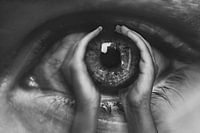 Monochrome Photography: Hands Holding an Eye - An Image of Intimacy and ConnectionElianne van Turennout
Monochrome Photography: Hands Holding an Eye - An Image of Intimacy and ConnectionElianne van Turennout Majestic Autumn Photo: The Tranquillity and Serenity of a Red-Tinged ForestElianne van Turennout
Majestic Autumn Photo: The Tranquillity and Serenity of a Red-Tinged ForestElianne van Turennout Majestic Deer in Enchanting Red Forest - Breathtaking Autumn Photo for InteriorsElianne van Turennout
Majestic Deer in Enchanting Red Forest - Breathtaking Autumn Photo for InteriorsElianne van Turennout freedomElianne van Turennout
freedomElianne van Turennout Authentic Portrait Photography: capturing Unique Beauty and PersonalityElianne van Turennout
Authentic Portrait Photography: capturing Unique Beauty and PersonalityElianne van Turennout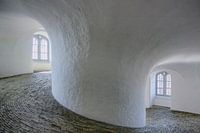 Majestic Interior of the Rundetaarn - Timeless Danish Architecture and History in PicturesElianne van Turennout
Majestic Interior of the Rundetaarn - Timeless Danish Architecture and History in PicturesElianne van Turennout Tower Bridge in London: Nighttime Photography with Haunted Taxi and Dynamic Light TracksElianne van Turennout
Tower Bridge in London: Nighttime Photography with Haunted Taxi and Dynamic Light TracksElianne van Turennout Black Rose in Morning Dew - Enchanting Photo with Mystical BeautyElianne van Turennout
Black Rose in Morning Dew - Enchanting Photo with Mystical BeautyElianne van Turennout Warm coffee scene with speculoos on wooden table - Perfect decoration for your interiorsElianne van Turennout
Warm coffee scene with speculoos on wooden table - Perfect decoration for your interiorsElianne van Turennout Photo of Feet or Shoes of Couple in the Rain: Symbolism of Desire and ProximityElianne van Turennout
Photo of Feet or Shoes of Couple in the Rain: Symbolism of Desire and ProximityElianne van Turennout Enchanting Photography with Purple Cloth - Inspired by Steve McCurryElianne van Turennout
Enchanting Photography with Purple Cloth - Inspired by Steve McCurryElianne van Turennout Unique Photo Manipulation: Man in Suit with Four-leaf Clover Head - Creative Art for Wall DecorationElianne van Turennout
Unique Photo Manipulation: Man in Suit with Four-leaf Clover Head - Creative Art for Wall DecorationElianne van Turennout Coffee Owl Artwork - Unique Wall Decoration for Coffee LoversElianne van Turennout
Coffee Owl Artwork - Unique Wall Decoration for Coffee LoversElianne van Turennout Intriguing Imaging: Groningen without Street Lights in Mysterious LandscapeElianne van Turennout
Intriguing Imaging: Groningen without Street Lights in Mysterious LandscapeElianne van Turennout Enchanting Spring Morning: Blossom in the SunriseElianne van Turennout
Enchanting Spring Morning: Blossom in the SunriseElianne van Turennout Minimalist Close-Up of Blossoms against Dark Background - Elegant Wall DecorationElianne van Turennout
Minimalist Close-Up of Blossoms against Dark Background - Elegant Wall DecorationElianne van Turennout Majestic Zebras Against Black Background - Impressive Animal PhotographyElianne van Turennout
Majestic Zebras Against Black Background - Impressive Animal PhotographyElianne van Turennout Sleeping Woman Floats Above Bed in Misty Outer Air (Seen at VT Wonen)Elianne van Turennout
Sleeping Woman Floats Above Bed in Misty Outer Air (Seen at VT Wonen)Elianne van Turennout The Authenticity of Traditional Values on Social Media: A Critical AnalysisElianne van Turennout
The Authenticity of Traditional Values on Social Media: A Critical AnalysisElianne van Turennout
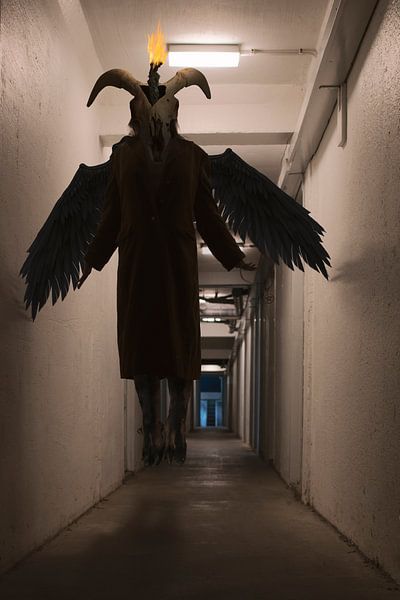
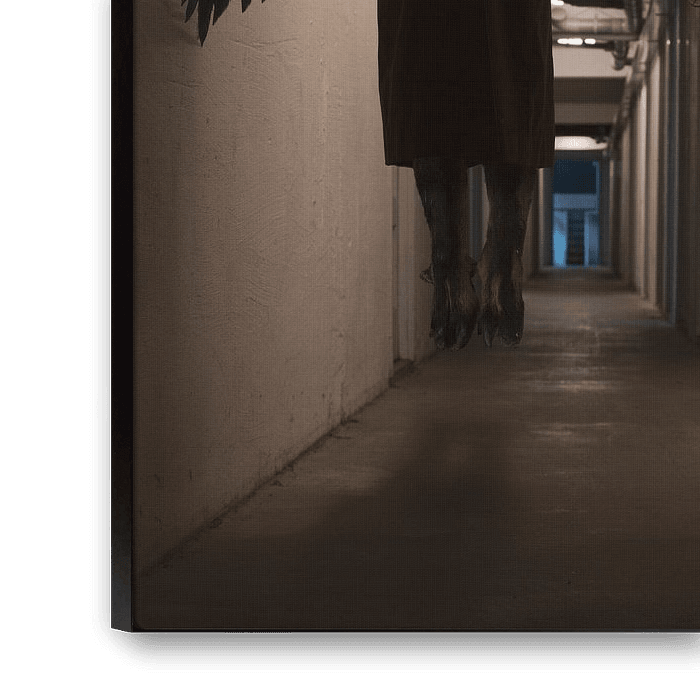
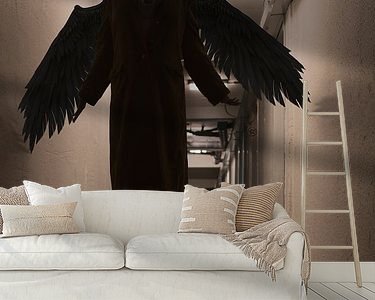


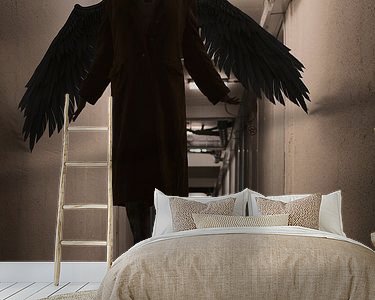

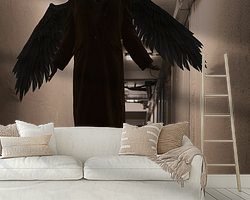

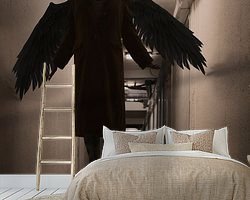



 Mysterious Spheres
Mysterious Spheres Photo wallpaper
Photo wallpaper Photography
Photography









